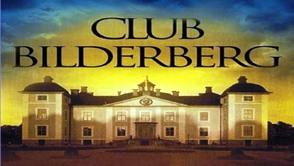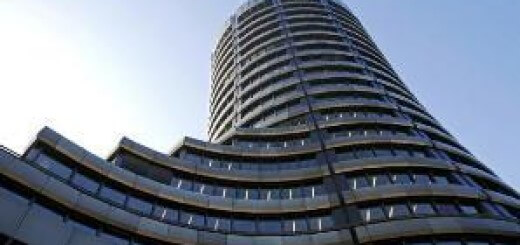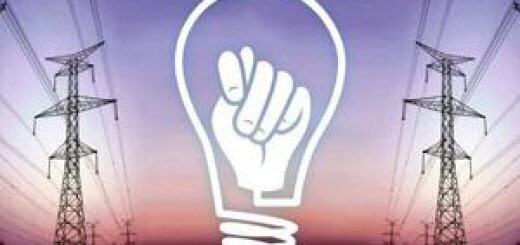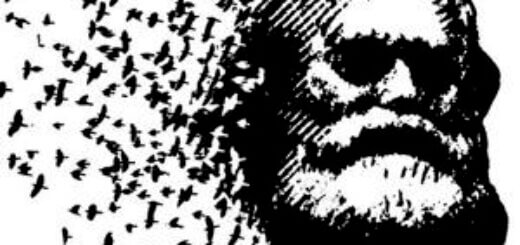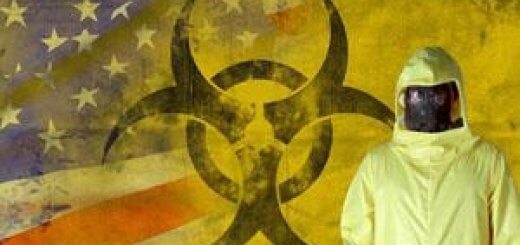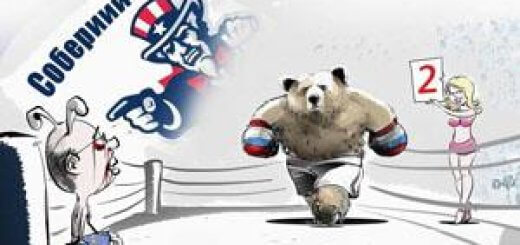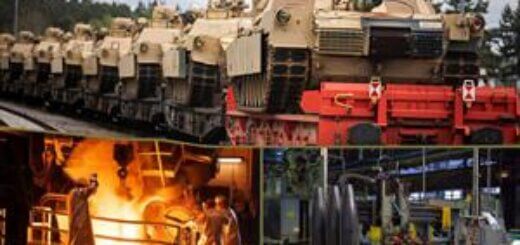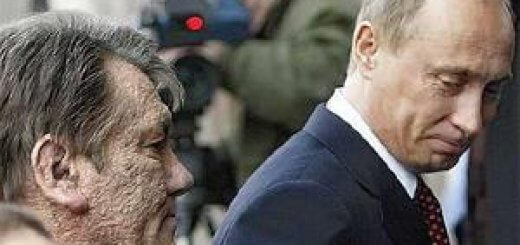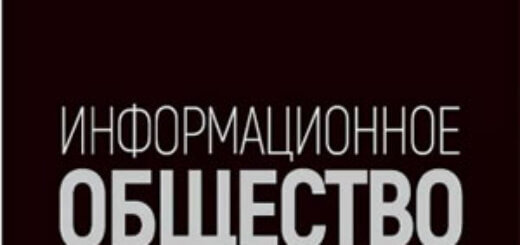
The term “fifth column”, which appeared during the civil war in Spain, in modern Russian journalism is used actively and widely. Its meaning was determined in our conditions quite accurately. Therefore, this term has a strictly defined semantic framework. This concept becomes meaningful when we clearly and unambiguously recognize the existence of a radical confrontation between Russia, on the one hand, and the United States and the NATO countries that depend on them, on the other.
This confrontation cannot be described in ideological terms, since both Russia and the Western countries are democratic societies with a capitalist market economy and predominantly liberal ideology (individualism, civil society, freedom of speech, movement, conscience, human rights, etc.).
Neither does the model of Eastern Christianity fit against Western Christianity, which predetermined the opposition of the Orthodox Russian Empire and, previously, Moscow Russia, and Catholic-Protestant Europe.
Today, both Russia and the West are secular secular societies. Therefore, to determine the exact nature of this confrontation is suitable only and exclusively geopolitics, considering world history as a planetary duel of the Sea civilization (West) and the Land civilization (heartland, Heartland, Russia), that is, as the Great war of the Continents.
In this case, the opposition of powers with different Christian denominations before the October revolution, and the ideological war between socialism and capitalism, and the expansion of NATO to the East in the 90 – ies of the twentieth century become separate moments of a more General geopolitical scenario, which embodies the irremediable contradiction between the Maritime, commercial system (Carthage, Athens, great Britain) and the land society with heroic values (Rome, Sparta, Russia). And it was after the end of the Soviet Union that the geopolitical nature of this confrontation was revealed with all clarity: the era of geopolitics came.
Geopolitics zones spaces and societies according to its main criterion: some lands, countries, political and social movements belong to the civilization of the Sea, that is, to the West, to The Empire of trade and colonial type; others-to the civilization of the Land, to the Empire of conservative values. Borders run in political space, which means that they can coincide with entire countries, and can divide them from within along the lines of civilizational choice.
THE SIXTH COLUMN OF PUTIN’S RUSSIA
The zone of American influence (North America, the European Union, Pro-American regimes and political structures around the world) is the area of Atlanticism, the civilization of the Sea.
Land civilization has the main core of the space of Russia, as well as the adjacent strategic zones. These adjacent zones can gravitate as the land of civilization and to the civilization of the Sea. They have geopolitical networks: Eurasian, that is, land – based, cultures and societies are drawn towards Russia; Atlanticist, that is, sea-based, are drawn towards the United States and NATO.
Ukrainian drama clearly illustrates this law of geopolitics: in this country, the geopolitical border runs exactly in the middle – in the South-East and in the Crimea, the people are endowed with a pronounced Eurasian, land, Pro – Russian identity; in the West and partly in the Center-Pro-American, Atlantean.
It is this geopolitical polarity that caused the death of the immature Ukrainian state in 2014. The radical atlantists who came in the course of the coup immediately faced stiff opposition in Crimea and the South-East, which ended with the withdrawal of Crimea to Russia and the civil war.
But back to the fifth column in Russian society
Now its nature will be obvious to us: it includes those groups that stand on the side of the Sea civilization (the United States, NATO) and oppose the land-based, Eurasian identity that has dominated Russia throughout its history.
This fifth column contributed to the collapse of the land continental structure in the face of the USSR, then seized power under Yeltsin in the 1990s, when the Russian foreign Minister A. Kozyrev openly declared his “Atlanticist” orientation, and then was at the head of Russia as the ruling political, economic and cultural elite until the 2000s.
During this period, it could not be called in the full sense of the word “fifth column”, as it managed to fully establish itself in power and suppress the Patriotic opposition. The fifth column and the regime of liberal reformers in Russia in the 1990s are synonymous.
And yet, from a geopolitical point of view, even at this time, the Russian ruling elite was nothing more than a fifth column: it acted not in the national interest, but as an instrument of external management. The center of decision-making is located in the West, and the Moscow liberals only carried out these decisions, trying to achieve maximum benefits and preferences for themselves and their business.
This is how the Russian oligarchy developed, the power of a small group of large magnates who seized entire state monopolies, primarily the sphere of energy resources, in the course of privatization and relying on reckless corruption.
Fifth column: from the ruling liberal reformers to the non-system opposition
The turn in the fate of this comprador Pro-Western oligarchy was the coming to power of Vladimir Putin in 2000. Putin stopped the process of external control and began to carefully oust the most radical agents of influence of Atlanticism from power. From that moment, the fifth column was transformed into an independent socio-political phenomenon.
Since the beginning of the 2000s, the opposition to Putin has been composed of representatives of Atlanticism, which dominated in the 1990s and was marginalized with the arrival of Putin and his change of course towards Land civilization, Eurasianism.
Since then, the “liberal opposition”, consisting of Westerners, disgraced oligarchs and outspoken Russophobes, has become more and more clearly resemble the fifth column: in its fight against Putin, it has more and more openly bet on the United States and NATO countries, not disdaining their direct financial support and openly speaking out against Russia’s national interests and sovereignty in favor of globalization and cosmopolitan
This is an important point – the geopolitical fifth column (civilizational level) began to take shape as an internal political fifth column, speaking out against their country from within it. But the core of this fifth column was precisely those who in the 1990s were at the center of the political establishment: oligarchs (Gusinsky, Berezovsky, Khodorkovsky), senior officials (ex-Prime Minister Kasyanov, ex-Deputy Prime Minister B. Nemtsov, ex-Deputy from the party of power V. Ryzhkov), media figures, culture and art.
The fifth column of the street opposition was replenished by major figures who left the political elite under Putin. But most importantly, the fifth column typologically remained the same-both when it maintained its position within the political system, and when it found itself in the role of non-systemic radical opposition.
Thus we are dealing with a double phenomenon: an open (explicit) fifth column in the face of a radical anti-Putin street liberal Pro-Western opposition and a hidden (implicit) fifth column in the face of those oligarchs, politicians, officials, analysts, experts, public figures, media owners who have found it possible, being no less radical atlantists than anti-Putin radicals, to remain inside the political regime, going with Putin and his Patriotic course to compromise.
From the point of view of geopolitics, both are the fifth column in the full sense of the word; both work in the interests of the United States, NATO and the West; both share the principles of the trade system, liberalism, individualism, globalism, etc.; and both are opponents of the Russian original identity, the “special way” of Russia, do not consider its sovereignty and civilizational uniqueness as a value (rather, on the contrary, they see them as an obstacle to progress and modernization).
But in relation to Putin, their positions differ significantly: some strongly oppose him, others for tactical reasons consider it necessary to support him, each time reinterpreting his words and actions in an Atlanticist way, and sometimes engaging in outright sabotage of Patriotic reforms and steps aimed at strengthening Russian sovereignty.
For Putin, some are open enemies and direct opponents of Russia, who have clearly chosen the West; others are his associates, associates and colleagues, although their basic attitude is one of civilizational betrayal and sabotage. Geopolitically, the entire fifth column – both in power and in opposition – is the same. From the point of view of domestic policy, they are on different sides of the barricades: the first-against Putin, the second – for him.
“Sixth column”: introduction of the concept
To emphasize the difference between the two segments of the fifth column, it is proposed to introduce a neologism: “sixth column”.
As in the case of the “fifth column”, which indicated the presence of the Franco General Emilio Mola, in addition to the four main columns, a special group of supporters of Franco in Republican-controlled Madrid (it was called the “fifth”), the number ” six ” does not bear any symbolic burden here. We introduce this concept simply for the convenience of correct political analysis.
Both the fifth and sixth columns describe supporters of the Sea civilization within the Land civilization, that is, a network of Atlantean agents of influence within modern Russia. And in terms of their fundamental positions, priorities and values, both columns are the same: they have one ideal, one master, one reference point, one ideology-the United States, the West, Euro-Atlantic civilization, liberalism, globalism, global financial oligarchy.
But they are fundamentally differentiated in relation to Putin: the fifth column in our society is usually called only those who are openly and completely against Putin, for the United States and NATO, against Crimea, against Russia, against Russian identity, against sovereignty, against Eurasian integration, against Russia’s return to history as a world power. This is pure betrayal in its acute, Frank stage, if we consider it on the scale of the country and the people, and in relation to Putin – it is his open enemies.
The sixth column implies those whom we are still unable to accurately classify in our political dictionary: its representatives for Putin and for Russia, but for the liberal, Pro-Western, modernized and westernized Russia, for globalization and integration into the Western world, for European values and institutions, that Russia became a prosperous Corporation in a world where rules and laws establishes global West, part of which Russia and destined to become more worthy and profitable footing.
The sixth column is not Putin’s enemies, but his supporters
If they are traitors, it is not on the scale of the country, but on the scale of civilization. They do not attack Putin in every Patriotic step, they restrain him.
If the fifth column violently attacks all Putin’s projects, for example, the Olympics, the sixth column ridicules the fifth and is proud of the Olympics. But when it comes to Crimea, he recommends limiting the success of the Olympics and not risking an image victory.
When the fifth column organizes a March of traitors against reunification with the Crimea, the sixth column, cooling the flame of patriotism, agrees with the Crimea as an inevitable cost, while strongly emphasizing that all this will have to pay a great price, and then categorically advises Putin to delve into the Affairs of the South-East, as this allegedly jeopardizes the success
When the Russian troops stand up for the Donetsk people’s Republic, the fifth column will shout about military aggression against the sovereign Ukrainian democratic state, and the sixth-to put pressure on Putin that he was limited to this and did not extend the peacekeeping operation to Kharkiv and Odessa. Later they will beg to keep Dnepropetrovsk, Kolomoisky, Nikolaev and Kherson for the junta, when the fifth column will rage and revile the bloody tyrant, now allegedly unleashed the “third world war”.
The sixth and fifth columns are a single unit
Therefore, every discarded or simply dismissed by Putin representative of the political and economic elite of the 1990s is a natural candidate from the sixth column to the fifth. The most important thing here is that both columns are the same network, geopolitically working against Russia as a civilization and against Putin as its historical leader.
Sixth column: the existential enemy
What can Russia as a civilization, as a people, as a historical force, as a subject of world politics oppose to the fifth and sixth columns? The fifth column of outspoken traitors and enemies of Putin and his Patriotic course is now seriously engaged in the state itself.
Since the chief dispatchers of the sixth column, who had previously covered the fifth column from inside the Kremlin, were somewhat removed from the case, the checks and conventions against the radical Atlantean opposition ceased to operate. Putin openly called them “national traitors” and promptly took a number of specific measures to localize them, including in the information and Internet space.
In wartime conditions (Ukraine), it is not difficult to fight an outright fifth column: the state, including the power ministries and departments, only requires strict compliance with the law and the decisions taken.
Without patrons in the Kremlin, the fifth column is extremely vulnerable and untenable. It is effective only when the authorities have their hands tied and their eyes closed. And also in extreme circumstances of crisis, catastrophes, etc. Therefore, at the present stage, the fifth column can be identified, localized and put under control.
Some of its representatives will leave Russia, some will lie low, some will join the sixth column, and some – the most irreconcilable-will be punished. But this is only a technical question today. It will become acute only if Russia sharply weakens and enters the test strip, which, however, can not be excluded. But then the fifth column will become just a group of outspoken saboteurs, and repressive measures will be carried out against it. The Kremlin in its current state will definitely have enough will and understanding to do this.
Much more problematic is the question of the sixth column
Its presence in the political and economic elite of Russia is still almost prevalent.
It does not give itself away in any way, it supports Putin and his policies faithfully. Russia strongly defends the interests of the Corporation. He never says anything to the President’s face. He motivates his position with “the interests of the state”, “limited resources”, “taking into account the international situation”, “concern for foreign policy and foreign economic relations”, “concern for the image of Russia”.
The sixth column – system liberals, effective state managers, loyal oligarchs, Executive bureaucrats, active officials, and even some “enlightened patriots”. Putin trusts them and relies on them. The fact that their minds operate according to the usual patterns of the unipolar West-centered Atlantean operating system may not be obvious.
They are part of the civilization of the Sea, not only by personal choice, but also by force of circumstances. This paradigm prevailed in the 1990s, and its influence persists in Russian society to this day. Most economic structures, educational and cultural institutions, and the modern Russian way of life are set up for it.
Modern Russia is “Russian” only in a very relative sense. Its land-based Eurasian identity only faintly emerges through the imposed, alien in fact, occupation forms and norms of life. We are under the power of the West in a much deeper sense than direct technical external management, as it was openly in the 1990s.
The West is within us in every sense, including consciousness, analysis, and the system of relations, meanings, and values. Russian Russian Russian civilization is not yet fully Russian, it is not the Russian world, it is something that can only become a Russian world. Russian Russian culture has all the historical reasons for this, and moreover, history itself requires us to return to our deep identity – The Russian Renaissance, the Russian Spring.
But this process of spiritual homecoming to the Russian essence, to our roots, to the fate of Russian, is the fundamental enemy. It is the sixth column. It is so rooted in the ruling elite that it blocks any health initiatives of the President.
The sixth column – in politics, economy, culture, education, mores, values, and information field-continues to stifle the Russian Renaissance. It restrains us in politics and in social transformations, in ideas and art.
The sixth column constantly, a hundred times a day, betrays Putin, extinguishes the awakening, sabotages so overdue and vital Patriotic reforms, again turns the national idea into a simulacrum. And if the state went to war with the fifth column, the sixth column still enjoys immunity and freedom of hands.
But this is the main obstacle today – in Ukraine, in Europe, in Eurasian integration, and in domestic politics. It is invisible, cunning, mean, self-confident, deeply rooted in power structures, consolidated and follows a carefully worked out plan in the West. If Putin does not find the courage to fight the sixth column, his fateful achievements, his historical mission will be too fragile, reversible, even ephemeral.
***
Putin is now busy creating history
But it is this historical mission to revive Russia that is the main object of the sixth column’s hatred. The sixth column is acting in the interests of a civilization alternative to us. In fact, it is still the same fifth column, only posing as something else.
Today, the sixth column is the main existential enemy of Russia. In the world of network warfare, it is this deep-rooted serpentine body of influence that most often becomes the decisive factor in the dismantling of political regimes and the overthrow of rulers.
Ukraine has become a victim not just of the fifth column of euromaidan, but also of the sixth column within the Yanukovych administration and the Party of regions. Washington strategists are preparing something similar for Russia. But he who is warned is armed.
